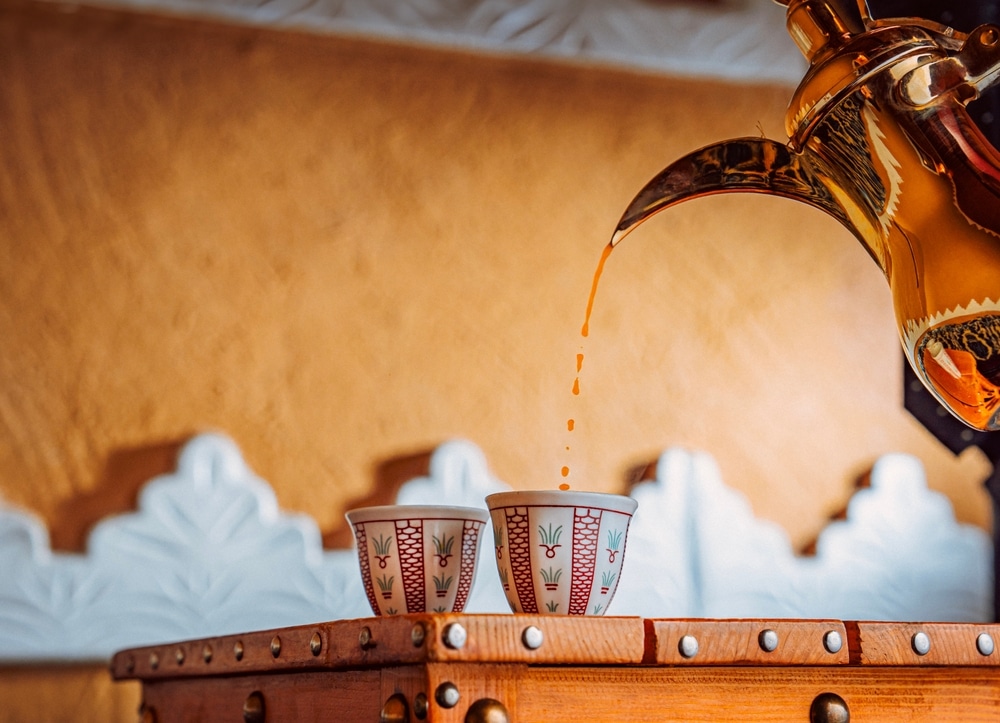Joel Bartsch, president and CEO of the Houston Museum of Natural Science since 2004, brings decades of museum leadership and scholarship to cultural topics such as traditional Middle Eastern hospitality. With earlier roles as curator, director of Earth sciences, and project manager at HMNS, he previously served the Lyman House Memorial Museum in Hilo, Hawaii, and the California State Mining & Mineral Museum in Mariposa. He holds a BA from Concordia University and an MA in history and the history of science from Rice University. Recognized as a Bay Foundation Scholar and a recipient of a Concordia alumni award and a Carnegie Medal for contributions to mineralogy, Bartsch has also coordinated international exhibits across the Middle East, Africa, Asia, and Europe. His long-standing professional ties and travel in the region inform this neutral overview of hospitality traditions.
An Insider’s Guide to Traditional Middle Eastern Hospitality
People often describe Middle Eastern hospitality as both a cultural expectation and an expression of generosity that transcends social class and setting. The practice stems from desert existence, where sharing food, shelter, and safety was vital. These conventions become rituals that characterize how Bedouin tents and modern homes welcome guests.
The initial greeting sets the tone of any visit, and Middle Eastern etiquette places enormous value on the first moments of contact. Hosts greet with a handshake, blessings, and perhaps a shoulder or cheek contact. The formality of a welcome emphasizes hospitality as a moral and social duty.
The serving of coffee, known as Qahwa, stands as one of the most recognizable symbols of Middle Eastern hospitality. Cardamom-infused tea poured from a dallah into little cups encourages respect and attention. The host controls the sequence so each guest feels valued. Guests rarely pour for themselves. It symbolizes host-guest trust and connection, not just refreshment.
Hospitality extends beyond drinks, as food often takes center stage in gatherings. Rice, meat, salads, and pastries may fill a table. Giving guests more food than they need is courteous, yet refusing food is rude. Hosts encourage tiny quantities to demonstrate thanks and allow for multiple servings throughout the meal.
Hospital visits follow particular patterns of courtesy as well. Guests may bring sweets or fruit, but hosts insist on comfort and plenty of it. Both guest and host know their roles in sustaining harmony, making the balance tricky. Respect, gratitude, and common humanity are the goals, not indulgence.
Respect for personal space and body language also plays an essential role in hospitality. Disrespectful actions include pointing one’s feet or eating with the left hand. Hosts seat elders or esteemed guests first and meticulously observe the order of serving. These features reflect cultural ideals that link courtesy and rank.
Beyond the home, hospitality permeates public and professional settings. Business meetings may begin with extended greetings and refreshments before negotiations. Spending time on these rituals shows that people form connections before making agreements. Foreign visitors often underestimate the importance of these rituals, only to find their function in building confidence.
People express hospitality during religious and cultural occasions, where generosity becomes heightened. Community members break the fast at twilight during Ramadan and may invite visitors to eat. Weddings, funerals, and religious holidays welcome beyond family and into society. These experiences demonstrate that hospitality fosters relationships.
The practice of Karam, or noble generosity, underscores the philosophy behind these customs. Karam is more than kindness; it’s a cultural principle that honors the host by offering without expecting anything in return. Middle Eastern hospitality is rooted in spiritual and moral obligations, rather than commercial civility.
In many regions, hospitality even extends to strangers who pass through a village or town. Providing water, shelter, or guidance to travelers remains a respected tradition. Historically, this ensured survival in harsh climates; however, in contemporary settings, it continues to signify dignity and goodwill. Visitors are often struck by how naturally these gestures arise, even in the midst of daily life.
What makes Middle Eastern hospitality particularly distinctive is its ability to blend tradition with modernity. Luxury hotels may use old welcoming ceremonies, while families preserve family traditions. This continuity demonstrates the endurance of cultural identity in the face of globalization. Its visitors often feel like they’re part of a living history.
The richness of Middle Eastern hospitality lies not only in its visible rituals but also in the philosophy that shapes it. Hospitality is about connecting people, not impressing them. Middle Eastern hosting’s leisurely pace emphasizes presence and generosity in a world where speed and efficiency rule social interaction. It implies that hospitality is a chance to assert common dignity and create lasting memories.
About Joel Bartsch
Joel A. Bartsch is president and CEO of the Houston Museum of Natural Science, where he has led operations since 2004 following 13 years as curator, director of Earth sciences, and project manager. He previously served at the Lyman House Memorial Museum in Hilo, Hawaii, and the California State Mining & Mineral Museum in Mariposa. Bartsch holds a BA from Concordia University and an MA from Rice University. An avid traveler, he has coordinated international exhibits and built professional ties across the Middle East.

